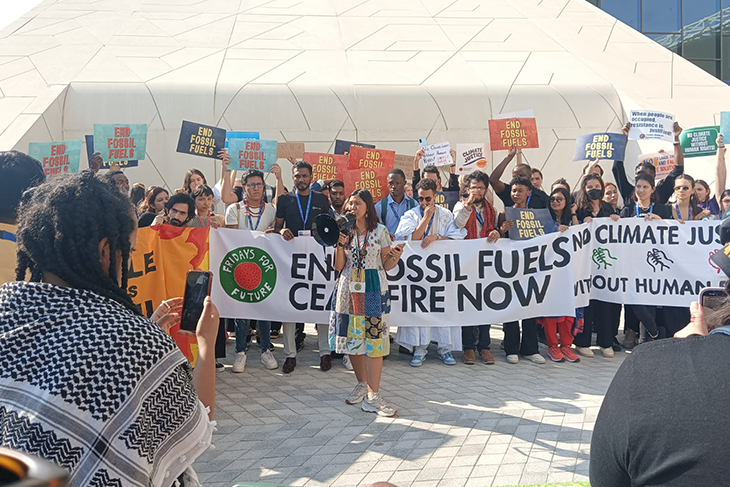Like most of the previous meetings the 2023 United Nations Climate Change Conference or more commonly referred to as COP28, as it is the 28th Conference of the Parties of the United Nations Framework Convention on Climate Change, is a mixed bag, and unless we move faster, will be a growing disappointment and another sign that all our institutions are failing us both in the here and now and for our future generations.
We can be glad that the loss and damage fund that was agreed to in the COP27 has been operationalised, but with paltry sums pledged to it this could turn out to be a hollow gain. The needs of vulnerable communities, the overwhelming majorities of whom are in the Global South are escalating to reach hundreds of billions of dollars.
The presence of thousands of fossil fuel lobbyists, according to some estimates these lobbyists could together constitute the third largest contingent after the hosts UAE, and Brazil whom some reports hold will be the hosts of COP29. Not just the number of fossil fuel lobbyists but Sultan Al Jaber the President of COP28, is also CEO of the Abu Dhabi National Oil Company, and has reportedly stated there is no science behind the calls to phase out fossil fuels. Dr Al Jaber has refuted these reports but has not shared any evidence to support this revised claim.
More importantly the COP28 seems to continue to show the dominance of corporate interests. We can see this in minimizing pressures to reduce greenhouse gas emissions, reduce corporate responsibilities towards financing the loss and damage fund, while making all efforts for expanding business’s role in using climate change as an opportunity to create yet another accumulative industrial revolution or a new economic development project for the benefit of a few.
The second draft of the Global Stocktake, a review exercise mandated by the 2015 Paris agreement to be carried out this year, introduced in the second week of COP28, keeps fossil fuel phase out on the negotiating table. The new draft gives a hopeful possibility of phasing out of fossil fuels over phasing down of fossil fuels. This is a welcome step.
However, beyond the welcome rhetoric outlining intent, in real terms phasing out is not possible without a substantive and urgent financial and technical support to the developing countries. One that is premised on the principle of common but differentiated responsibility and a recognition that it is the actions of developed countries that are the main cause of climate change that is killing poor people around the world. We need to recognise that any such path will first and foremost need developed countries to respect and enhance their promises for climate financing and put an end to their oil and gas use, and its further expansion. None of this is happening, as the developed world keeps guzzling and barrelling away oil and gas, while stalling all calls for multiplied climate financing needed to enable transparent, equitable, just and eternal transitions out of fossil fuels.
There is real danger that future COPs, will see only lip service towards issues of sustainability, with the hard deals suited business interest closed in the backrooms, which can only be accessed by corporate lobbyists and business interests.
As climate activists have stated this is what you get when you call on arms dealers to preside on peace talks or request the fox to suggest ways in which we can protect the chicken coop.
We need more pressure from vulnerable communities through their social movements, their organisations and their governments to counter both the interests the powerful nations of the developed countries and the pressures of multinational corporate interests that depend on over extractive, over polluting and over exploiting industrial processes to make their profits over the interests of people and the planet.
There is no doubt that the Conference of the Parties of the United Nations Framework Convention on Climate Change has been a marathon. After decades of running against time, we are in with a final chance to save our people and the planet. A sprint is now needed to win.
Disclaimer: The article was originally published on mid-day. The views expressed in the article are the author’s and do not necessarily reflect those of ActionAid Association.
 Author: Sandeep Chachra
Author: Sandeep Chachra

